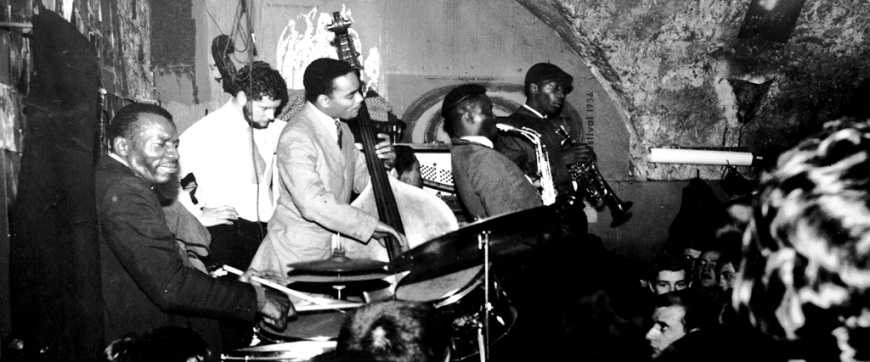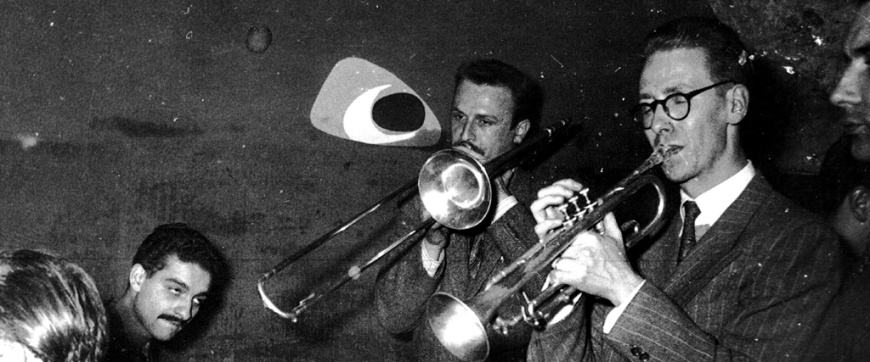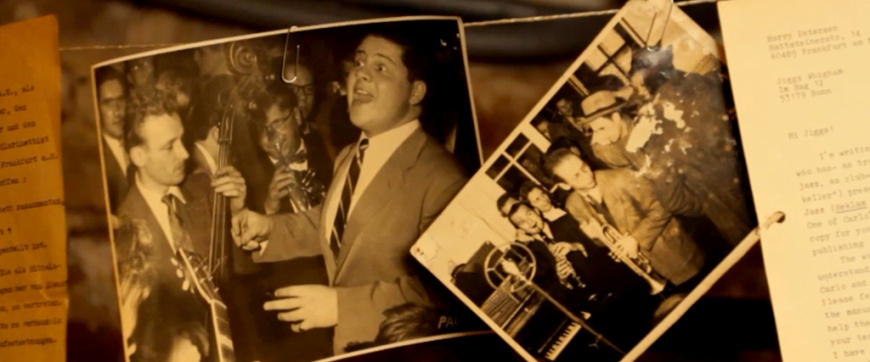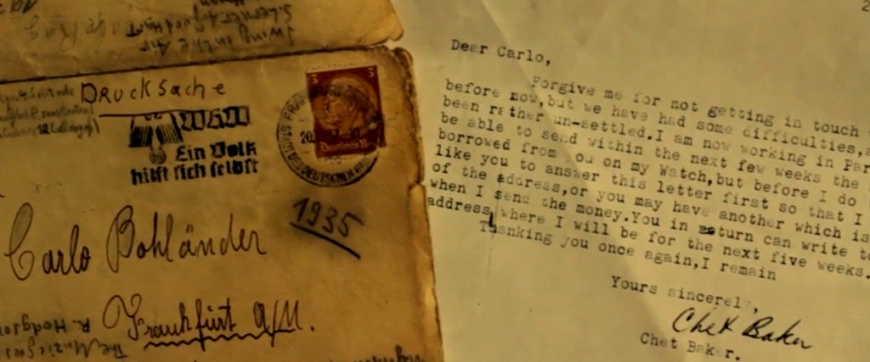Background
When director, film producer and trained singer Elizabeth Ok moved into a small apartment on Frankfurt's Mainkai in 2008, which her friend Anita Honis Bohländer, owner of the music bar Balalaika, had arranged for her, she made a sensational find: The basement of the apartment at Mainkai number 6 was filled with photos and letters from celebrities such as Lee Konitz, Chet Baker, Albert Mangelsdorff, Bill Ramsey, Attila Zoller, Jutta Hipp and others. In addition, there were sheet music, records, newspaper clippings, old issues of jazz magazines, documents, posters, personal items and a clarinet. These and much more were the legacies of Carlo Bohländer, one of the best German jazz trumpeters of the 1950s and founder of the Domicile du Jazz, today's Jazzkeller in Frankfurt – an institution of jazz in Germany through which many American and international artists came to Germany and Europe.
Elizabeth Ok understood very quickly what a treasure she had found there and received permission from Anita Honis Bohländer to sort through the treasure. After viewing the rich material, Elizabeth Ok decided that only a film could do it justice. She established contacts with people who were then part of the regular line-up of the Domicile du Jazz and decided to include them in her film project. Her vivid descriptions of the beginnings of the Frankfurt swing and jazz era, together with the material from the cellar, are interwoven in Elizabeth Ok's documentary "Carlo, Keep Swingin'" to form an impressive portrait of the Frankfurt jazz legend and transport the viewer right into the middle of it, into an exciting German epoch – in which the city of Frankfurt am Main and the jazz cellar played a central role. This is how the music journalist Michael Rieth describes the function and significance of the Jazzkeller: "Carlo obtained a concession for this vault and called it Domicile du Jazz – Hometown of Jazz".
On the history of jazz in Frankfurt am Main
Jazz was already being taught at the Dr. Hoch's Conservatory in Frankfurt in 1928, with the Hungarian composer Mátyás Seiber leading the courses until the Nazis put an end to it in 1933. Carlo Bohländer, born in the Main metropolis in 1919, studied classical trumpet there from 1935 to 1938. Already during the Second World War in 1941 he gathered fans and musicians around him and founded the Hot Club Frankfurt together with Horst Lippmann to live jazz in secret. At that time, this music was officially considered negro music or degenerate music. It took courage and a good portion of enthusiasm to play this music. The anatomy of swing – Bohlander's unique musicological treatise at the time – was indispensable reading for many of his companions such as Emil and Albert Mangelsdorff, Günther Lenz and Gustl Mayr.
After the Second World War, Carlo Bohländer founded the Domicile du Jazz or the Keller (cellar), as it was henceforth called. During the day it served as a simple rehearsal room, but at night it turned into the smoky and inspiring nucleus of jazz in Germany. Here real jazz was played and not American pop music like in the usual Frankfurt GI clubs. The vault became the hub for world-famous jazz greats from overseas and Germany such as Keith Copeland, Duke Ellington, Ella Fitzgerald, Dizzy Gillespie, Paul Kuhn, Bill Ramsey and even Louis Armstrong. On no other stage have so many legendary jazz musicians performed as there. And at the centre of the action was trumpeter and jazz theorist Carlo Bohländer. Through his work he inspired and influenced Duško Gojkovic, Emil and Albert Mangelsdorff and many other musicians.







